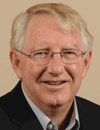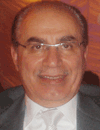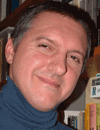08:00 | Registration |
|
Session: Cell Line Development |
| |
09:00 |  | Keynote Presentation High Performance Fed-Batch Cell Culture for Both Stable and Transient Production
Matthew Croughan, Professor and Director of the Amgen Bioprocessing Center at KGI, Kecks Graduate Institute, United States of America
New methods to control cell metabolism, along with advanced approaches to mass transfer, can be used to achieve cell densities above 35 million/ml and titers above 10 g/L (stable) or 0.1 g/L (transient), and will drive further improvements going forward. |
|
09:30 | Novel Clinical Grade Approaches for Mesenchymal Stem Cells Ex-vivo Cultures
Olivia Candini, Post-doc Fellow, University Hospital of Modena and Reggio Emilia, Italy
In this paper, innovative approaches to expand adult mesenchymal progenitor cells will be presented coupling improved reagents selection with clinical needs positively impacting both cell performance and regenerative potential. |
10:00 | Recombinant Antibody Mixtures: Control of Antibody Quality during Process Optimization
Christian Müller, Senior Scientist, Synphogen, Denmark
Recent advances of Symphogen’s Sympress™ expression platform will be presented. Sympress™ is a single batch manufacturing approach for production of antibody mixtures with which it is possible to produce a desired antibody composition at high batch-to-batch consistency and with gram-scale titers. The technology significantly reduces the developmental costs for antibody mixtures. |
10:30 | Coffee Break and Networking in Exhibition Hall |
11:15 |  | Keynote Presentation Cellular and Molecular Markers of Productivity in CHO Cell Culture
Mohamed Al-Rubeai, Director, University College Dublin, Ireland
A range of cellular, metabolic and molecular factors have been identified that may act synergically to influence productivity in CHO cell lines. The results of work that employed metabolomics and cytomics will be presented to provide an overview of the complexity of the cellular process of antibody production. |
|
11:45 | Improvement of Cell Culture Technology for Primary Cells and Stem Cell Manipulation
Veit Bergendahl, Head, Miltenyi Biotec GmbH, Germany
Development of complete solutions for translational research comprising of protocols, reagents, media, consumables and instruments at Miltenyi Biotec. We describe how the screening as well as cell production process is supported via integrated cell separation and analysis systems into commercial liquid handler platforms. |
12:15 | Lunch and Networking in Exhibition Hall |
13:30 | Poster Session |
14:15 | Delivering Vaccines to Next Generation Cell Therapies Using Design (DoE), Quality by Design (QbD) and Scale-up/Scale-Down Tools
Tiffany Rau, Global Technical and Technology Manager, Pall Life Sciences, United States of America
Small Scale technologies allow one to efficiently explore multivariate design spaces
through the use of DoE which embodies the principles of Quality by Design. Data will be
presented showing the advantages of using Microbioreactors to develop cell lines and
processes. |
|
Session: 3D Cell Culture |
| |
14:45 | 3D Cell Spheroid Formation and Culture Using a 384 Hanging Drop Array Plate
Shuichi Takayama, Associate Professor, University Of Michigan, United States of America
This presentation will describe a 384 hanging drop array plate that makes spheroid formation, culture, and subsequent drug testing on the obtained 3-D cellular constructs as straightforward as conventional 2-D cultures and compatible with standard high throughput liquid handling robots. |
15:15 | Coffee Break and Networking in Exhibition Hall |
16:00 | Cells in Gels in Paper: High-Throughput Platform for Investigation of Cell Function in 3D Tissues
Ratmir Derda, Assistant Professor, University of Alberta, Canada
Simple folding of paper permeated with extracellular matrix (ECM) and cells creates complex 3D tissues. These tissues can be used in chemo-sensitivity testing, investigation of invasion or differentiation. Unfolding rapidly sections multilayer cultures into live tissue sections. It provides the simplest and fastest analysis of 3D cultures to date. |
16:30 | Tumor-endothelial Cell 3D Spheroids: A Paradigm Shifting Model System to Discover New Treatments for Cancer
Meenakshi Upreti, Assistant Professor, University of Arkansas for Medical Sciences, United States of America
A method of gravity-enforced assembly of monodispersed, colour-coded cell types in a “Hanging drop” has been developed to create multi-cell constructs that (i) replicate micro-metastatic growth by mimicking the tumor/tumor microenvironment, (ii) can be precisely size controlled, and (iii) may be implanted in animals to follow the infiltration of the various cell types and study neovascularization, metastasis, disease progression and response to treatment. |
|
Session: Preventing Cell Line Cross Contamination |
| |
17:00 | Non-Invasive Classification of Stem Cell Phenotype using Image Texture Analysis
Paul Sammak, Associate Professor, University of Pittsburgh, United States of America
We apply non-invasive live cell phase contrast assays to evaluate stem cell differentiation and validated phenotype by high content analysis. |
17:30 | Drinks Reception |


